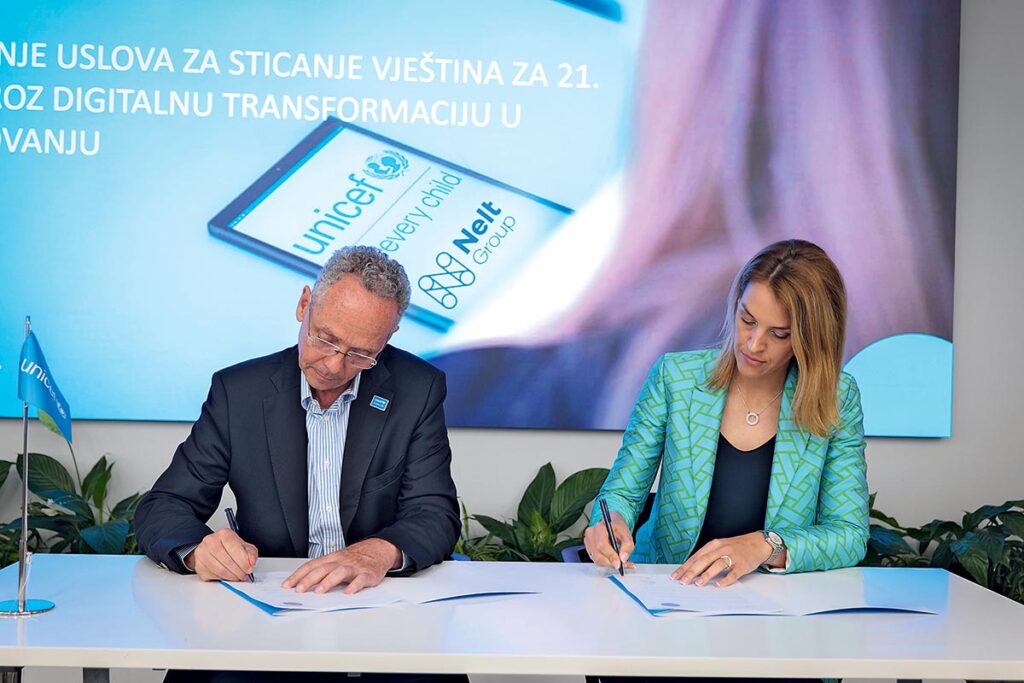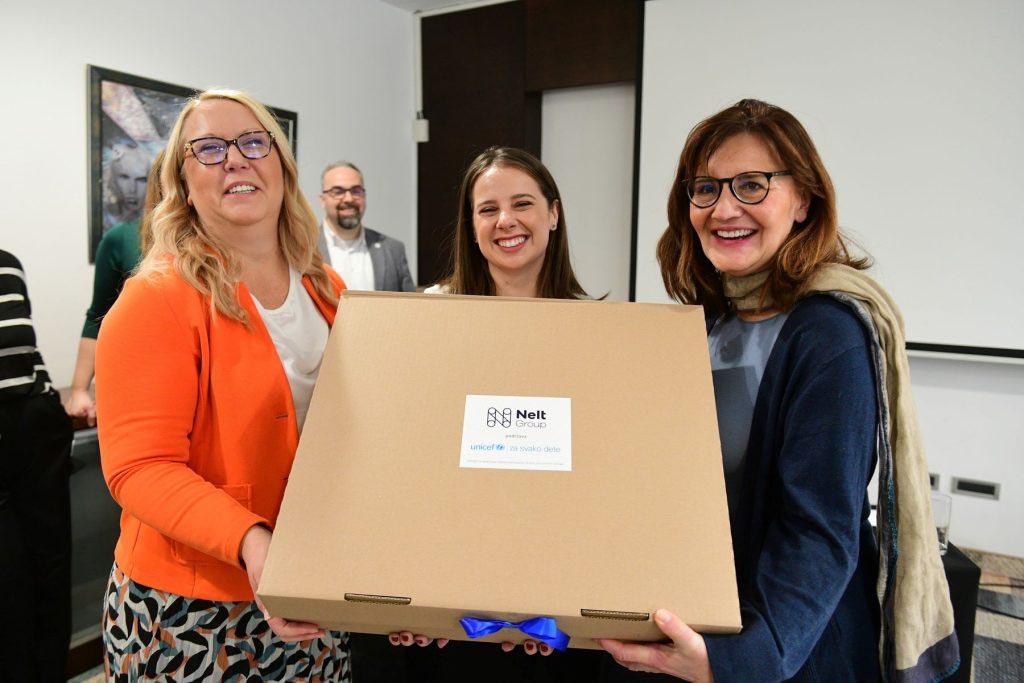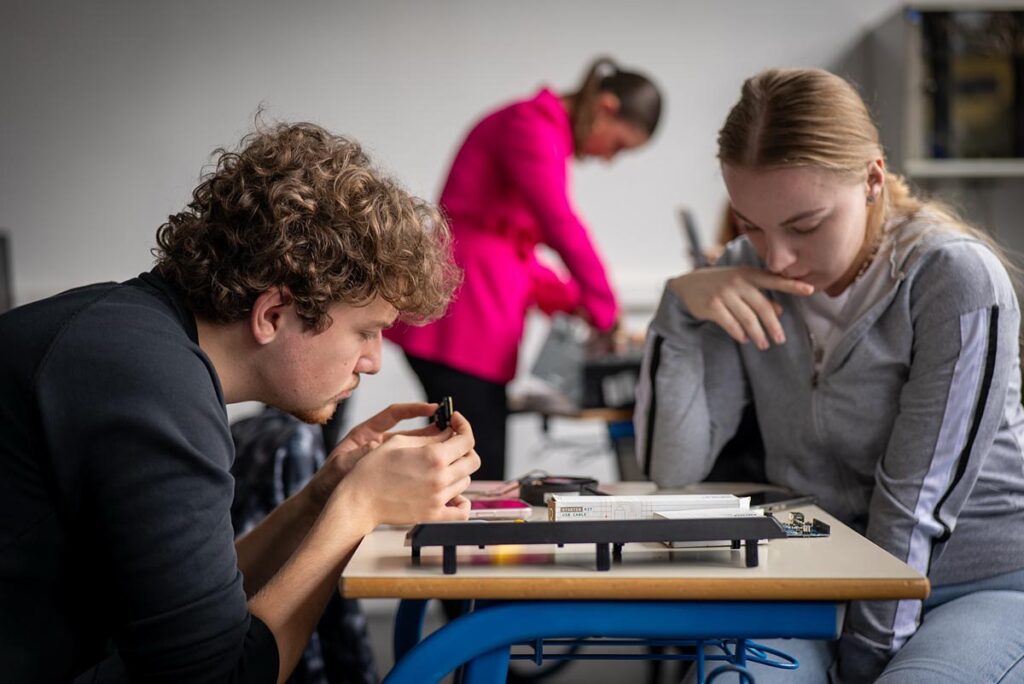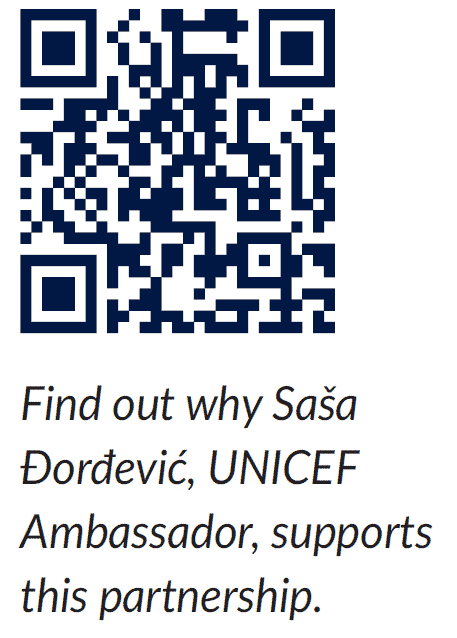Nelt and UNICEF: Building Education for the 21st Century
In a world where change moves faster than ever, education has become the foundation on which the future stands. The question is no longer only what children learn, but how they learn — and whether their skills match the realities of modern life and work.
Recognising this, Nelt Group and UNICEF have joined forces in a three-year strategic partnership designed to equip young people with the skills needed to thrive in the 21st century.
With an investment worth 1.3 million dollars, the programme spans Serbia, Bosnia and Herzegovina, North Macedonia, and Angola, aiming to reach 30,000 children and young people by 2026. The goal: to empower a new generation with digital literacy, environmental awareness, and the capacity to adapt, think critically, and create.

“For Nelt Group, investing in education is both a strategic and social decision. We believe every child deserves equal opportunities to develop their skills through innovative learning practices and access to knowledge,” says Nenad Miščević, Vice President of Nelt Group for the Serbian market.
At its heart lies a simple belief shared by both partners — that knowledge and access to modern technology are the most powerful equalizers. As children grow up in a world of constant transformation, their ability to adapt and innovate will shape not only their own lives but the societies they build.
Learning for Tomorrow
“The world today demands knowledge and skills that cannot be found solely in books,” notes Deyana Kostadinova, UNICEF Representative in Serbia. “Education systems must be flexible and inclusive, especially for vulnerable children and youth. Partnerships with the private sector are essential to make this vision real. When companies like Nelt invest in education, they invest in a future that is fairer, more just, and full of potential.”
Across all four countries, the partnership focuses on preparing students for a fast-changing labour market — one where digital competence, environmental awareness, and creative problem-solving are indispensable.
Four Countries, One Vision
Serbia has focused on strengthening Learning Clubs in schools through hands-on STEM activities and experiments. Classrooms have been equipped with new STEM kits, including Wind and Weather sets that help students explore meteorology and natural phenomena.
A survey conducted in December 2024 showed that 94% of participating students expressed high interest in these club activities — clear proof that interactive learning motivates curiosity and builds essential digital and green skills. Teachers and school leaders are also receiving continuous training in leadership, management, and innovative teaching methods, creating a network of educators who learn from one another.
In North Macedonia, the initiative has concentrated on developing green and practical skills that connect students with the real economy. UNICEF, in cooperation with the Centre for Vocational Education and Training (VET Centre), has mapped national needs and linked schools with scientific and public institutions for practical training. By April 2025, 16 new partnerships were established between VET schools and eight institutions, with 120 mentors scheduled to complete training programmes supporting students during internships.

In Bosnia and Herzegovina, the focus is on digital literacy and e-waste awareness. Together with the organisation Laboratorium, UNICEF introduced the Tinkering with E-Waste initiative through IT Girls clubs in 25 schools. Students learn to manage electronic waste responsibly, while 35 trained teachers bring sustainability into classrooms. UNICEF BiH also advanced the digital transformation of teaching by localising the SELFIE4Teachers tool, enabling educators nationwide to measure and improve their digital competencies.

In Angola, the programme supports initiatives that empower young people to solve local challenges through creativity, innovation, and practical learning, ensuring that every project responds to the community’s real needs.
The Power of Partnership
For Nelt Group, this collaboration is more than a philanthropic gesture — it’s part of a long-term strategy to build knowledge, confidence, and opportunity. Employees are directly involved as mentors, sharing professional experience and strengthening a corporate culture rooted in responsibility, cooperation, and learning.

The partnership’s impact has already been recognised through notable awards:
• Champion of Sustainability (Forum for Responsible Business)
• 18th Virtus Award for Philanthropy (Trag Foundation, 2024) in the category Strategic Partnership between Business and the Non-Profit
Such recognition affirms what both Nelt and UNICEF believe — that investing in children and education is the surest way to create long-term value, not only for business but for society at large.
As a testament to this vision, Nelt Group became the first company to join UNICEF’s global “I AM” campaign, which unites individuals and organisations around one conviction: that every child deserves the right to a safe, joyful, and dignified childhood.
Education that Builds the Future
The partnership between Nelt and UNICEF demonstrates how business and civil society can work together to create lasting impact. It is an investment not only in skills, but in imagination — the kind of imagination that turns today’s learners into tomorrow’s leaders.

